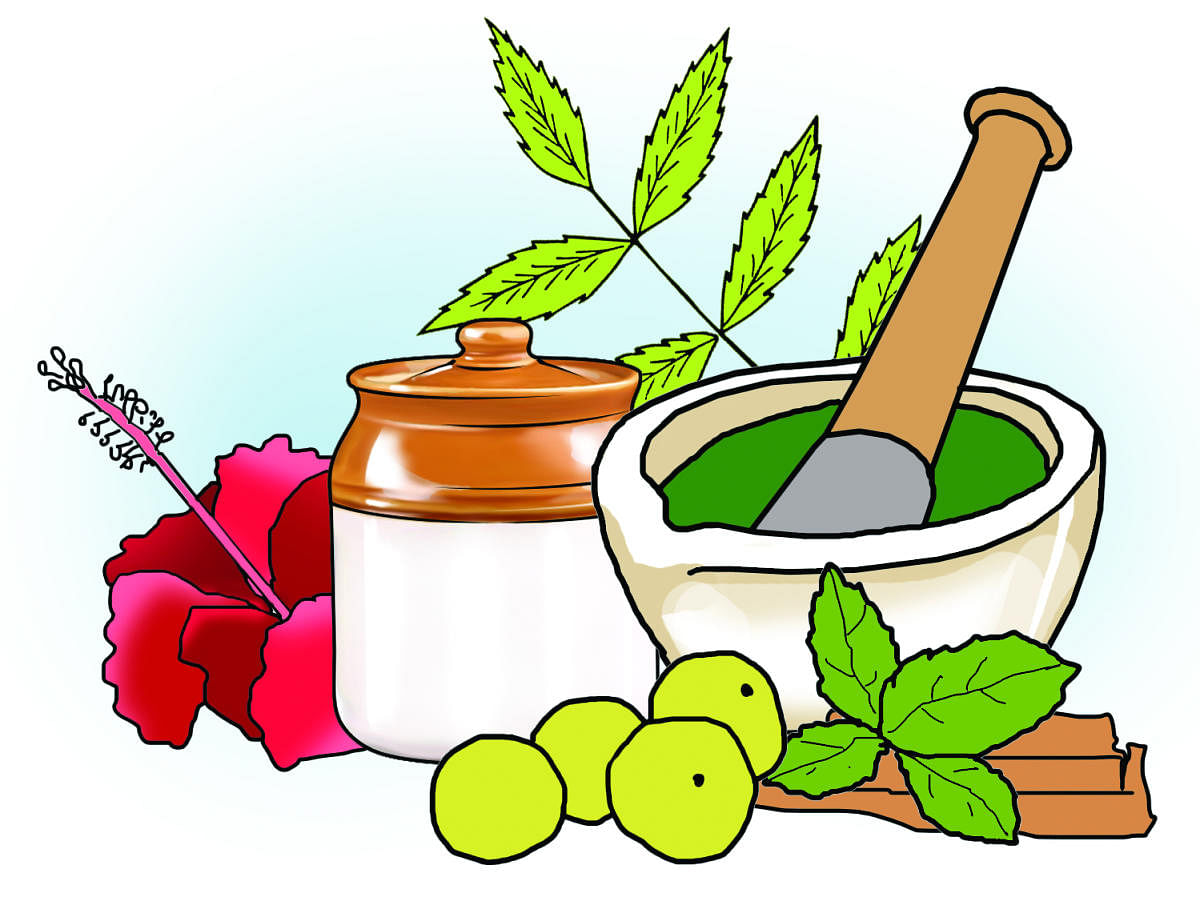
Ever since Baba Ramdev claimed, “Allopathy is a stupid science,” a debate is raging about various systems of medicine, and how they stack up against one another. Metrolife spoke to practitioners of alternative medicine to ask how they are faring during the pandemic.
Solutions in the energy
Reiki, a Japanese energy-based healing technique, has seen an increase in interest, according to Ravi Kumar Sardana, Reiki healer.
Generally understood as hands-on therapy, during the pandemic, it has gone online. “Cosmic energy is available in abundance. It is not affected by space, time or distance. Healing can be done by channelising the energy and redirecting it to the patient,” he says. Some online conferences helped him increase his awareness about the possibilities. “My clients have doubled in numbers. The acceptance is increasing,” he says. He recommends a minimum of three sessions, and believes Reiki can work with allopathy to speed up the healing.
Focus on holistic health
Kaivalyadhama, a health and yoga research centre based in Lonavala, offers week-long health and healing retreats.
Since they reopened last August after the lockdown, many have been coming in for detoxification, immunity-boosting and post-Covid recovery sessions.
The centre uses a combination of yoga, Ayurveda and naturopathy. Those who come in have to provide a negative RT-PCR test.
Several aspects of alternative medicine, such as diet, nutrition, supplements, oils, and eating habits are taught online. “We have also started online workshops and teleconsultations to bridge the gap. They are better than nothing and could be seen as 50 per cent effective,” says Subodh Tiwari, CEO.
Prior to the pandemic, the centre used to see 5,000 people annually, of which 60 per cent were from abroad. After the pandemic broke out, it is seeing increased interest from within the country. “We have hosted close to 1,000 participants since August 2020. We are seeing a large number of youngsters being drawn to yoga,” he says.
For those dealing with fear and anxiety, yogic practices like pranayama and meditation are helpful, he explains.
HempCann solutions
Odisha-based HempCann Solutions set up India’s first medical cannabis-based clinic in Bengaluru in 2020. The company manufactures Ayurvedic medicines, herbal supplements and body-care products.
“We source medicinally valuable plants, study them and create unique formulations for acute and chronic illnesses,” says Sourab Agarwal, founder.
Over the last decade, the cannabis plant has garnered a lot of scientific importance because of its potential applications in medicine, preventive health and integrative medicine.
The many ongoing studies and clinical trials that show the use of cannabis and cannabinoid adjunctive treatment in Covid-19 has helped increase this popularity during the pandemic, he says.
“Over half of our patients are above 40 years while about one fourth are between 29 and 40 years,” he says.
Medical cannabis can be used to improve a host of conditions including sleep disorders, chronic pain, depression, anxiety, irritable bowel syndrome, diabetes, different types of cancers, and more, he says.
“The usage of mind-altering substances in the West of the 1960s for recreation overshadowed the work that was being done by chemists and scientists using the same substances for therapeutic purposes,” he says.
Natural healing
Ozone therapy refers to the process of administering ozone gas to treat a disease or wound. Dr Mili Shah, president of Ozone Forum of India, says ozone is an energetic form of oxygen, and the molecule purifies the blood, lymph, and other body tissues by combining with them.
“It is an adjuvant therapy which helps in improving immunity and enhancing the disease-fighting capacity of the body,” she explains.
The natural healing modality is used to treat infected wounds, circulatory disorders, geriatric conditions, macular degeneration, viral infections, and intestinal conditions, she says. With more and more people seeking alternative treatments, there is also an upward trend in those seeking ozone therapy, she says.
Healing power of flowers
Bengaluru-based Indroneil Mukerjee is a Bach Flower therapist and transformational coach. For the uninitiated, Bach Flower therapy is the practice of healing mental and emotional conditions using 38 ‘vibrational remedies’ from floral essences and natural spring water.
Discovered by Dr Edward Bach in the early 1930s, it has been practised in India for about 40 years now. “Thanks to social media and educational content online, its popularity is catching on,” he says. For over a year, he has been conducting certification courses and close to 200 therapists have graduated so far.
Many are turning to this system to heal their fears and anxieties, and deal with the boredom of being locked up at home, he says. Most of his patients are women in the age bracket of 25 to 50. “No chemical or biochemical substance is used in the remedies. Thus, they are absolutely safe and without any side effects. There is no risk of overdosage either. It works well with other therapies,” he says.
Online consultation, however, has not hampered his efforts in any way. “The medium is of little consequence. It all depends on the ability of the therapist,” he explains.
Need of the hour
Much has been said of the crumbling state of the country’s medical infrastructure. Alternative medicine practitioners say they can ease the burden. “We should reduce our sole dependence on allopathy and turn to nature and find solutions,” says Ravi.
India, Subodh says, has the added advantage of the availability of a traditional medicine system under AYUSH. “If they are practised scientifically and systematically, our recovery rate could be much higher. All systems of medicine should be working together, there is goodness in all,” he says.